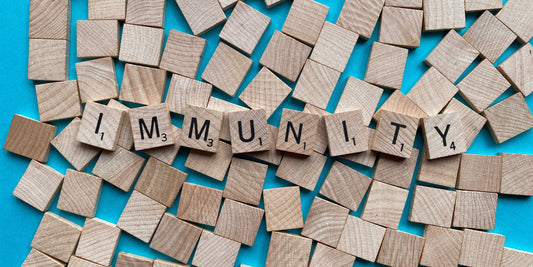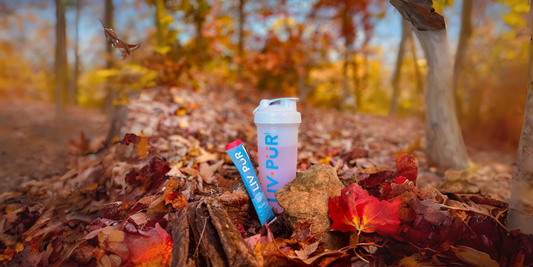Most people are chronically dehydrated. This is because throughout the day, our bodies are constantly pulling on and using the water we drink in almost every natural process happening within our bodies.
A survey of 3,003 people in 15 major cities reported drinking an overall average of only four 6–8 ounce servings per day. 44% said they drank only three or less servings of water per day and nearly 10% said they didn’t drink water at all.
Optimal hydration doesn’t just mean drinking water — but consuming enough liquids and nutrients to keep the balance of electrolytes to water constant and at the appropriate level. With how little water people drink in a day, it’s increasingly important to pay attention to not just how much water we consume, but the nutrients contained within it.
What is dehydration?
Simply put, dehydration is a fluid imbalance accompanied by a loss of essential electrolytes. If dehydration lasts too long, it can cause serious side effects.The adult human body consists of 60–70% salt water. The brain and heart are composed of 73% water, lungs 83% water, blood 50% water, skin 64% water, muscle and kidneys 79% water. There is water in every cell of the body, and the regulation and balance of electrolytes between different areas of the body is what keeps it functioning well. It’s not just the water itself — but what the water contains.
Dehydration can cause serious side effects if not corrected quickly, including the loss of function in internal muscles, which can lead to death.
Many people believe that dehydration means only that they need to drink more water. However, there are multiple types of dehydration, and knowing what type of dehydration you might be experiencing could help you better understand what your body needs.
3 types of dehydration
Hypotonic
Hypotonic or hyponatremic dehydration is when there is primarily a loss of electrolytes, sodium in particular. This is usually caused by diuretics, which are used to control the amount of sodium in your blood. Dehydration can happen when the diuretic causes sodium concentration to swing too far in the wrong direction. If you find yourself experiencing symptoms of dehydration after taking a diuretic, you should first talk to your doctor before reintroducing sodium into your body.Hypertonic
Hypertonic or hypernatremic dehydration is primarily a loss of water. This is the form of dehydration that most people think of that can be caused by excessive sweating or not drinking enough water. In hypertonic dehydration, there is too much salt outside of the cells, and not enough water. To correct this, water intake is generally sufficient, although severe cases might require medical intervention.Isotonic
Isotonic or isonatremic dehydration is an equal loss of water and electrolytes, and can be caused by vomiting, diarrhea, or not drinking enough water. Because liquid and electrolytes are lost in equal amounts, the natural process of osmosis between intracellular and extracellular liquid is impeded. Isotonic dehydration requires an intake of both water and electrolytes to balance things out.The most common type of dehydration is isotonic. A body in isotonic dehydration experiences hypovolemia, which is a state of abnormally low extracellular fluid. Because this fluid helps regulate the function of many cells, it can cause internal processes to work at suboptimal levels.
Electrolytes play a vital role in maintaining homeostasis within the body. They help regulate heart rhythm and nerve function, fluid balance, and oxygen delivery.
Water is essential for almost every single chemical reaction in the body and is necessary for numerous bodily functions. They include:
- Temperature regulation
- Cellular function
- Waste removal (detoxification)
- Improving oxygen to cells
- Improving cell-to-cell communication (mental function)
- Lubricating joints
- Transporting nutrients (important for healing)
Dehydration symptoms
We lose fluid/electrolytes when we breathe, sweat, drink alcohol, or go to the bathroom.This loss can be magnified if we are in heat, dry climates and/or altitude. Normally, we replace fluids with food or drink, but when we lose more than we replace, we experience a state of dehydration.
Symptoms of dehydration include:
- Dizziness
- Dark yellow urine
- Headaches
- Dry mouth
- Muscle cramps
- Dry skin
- Fatigue
- Brain fog
- Heart palpitations
Keeping in tune with your body can help you determine if and when you should use a supplement like LivPur Hydrate to make sure you’re hydrated optimally.
Many people wake up with symptoms of dehydration because even eight hours without drinking water or taking in hydration-promoting nutrients can make a difference. By hydrating often with nutrient-fortified liquids, you can prevent these common moments of dehydration.
How To Get & Stay Hydrated
For your body to function properly you must replenish its water and electrolyte supply by consuming beverages and foods that contain water and essential nutrients.The National Academies of Sciences, Engineering, and Medicine determine that adequate daily fluid intake is:
- About 15.5 cups (3.7 liters) of fluids for men
- About 11.5 cups (2.7) of fluids a day for women
Athletes — especially if they participate in long or intense workouts or endurance events — are at higher risk of isonatremia. In general, drinking water is not sufficient enough to replenish the loss of essential electrolytes.
Electrolyte drinks should be used when you’re exercising intensely for more than an hour. These drinks help replace electrolytes lost through perspiration and sugar needed for energy during longer bouts of exercise.
Athletes, however, are not the only people who should be increasing their water and electrolyte intake. There are many reasons why someone might become dehydrated, and just because you don’t classify yourself as an athlete, doesn’t mean you don’t have similar needs! Physical labor jobs, once-a-week workouts, an unbalanced diet, or even a few alcoholic drinks can hamper hydration too.
How LivPur Hydrate Keeps You Optimally Hydrated
LivPur Hydrate provides the ideal combination of electrolytes, vitamins, amino acids, and glucose to properly replenish the body.
Water is only the first step in fueling your body. For optimal performance physically and mentally, adding LivPur Hydrate to your routine can help ensure dehydration never slows you down.
“Hydration is not just about drinking water, it’s about replenishing your cells with essential nutrients.”
LivPur Hydrate contains a mixture that provides you with all of the essential electrolytes, amino acids, and vitamins to fuel your body properly.
The delicate balance of nutrients contained in a LivPur Hydrate supplement can promote muscle growth, limit fatigue, and boost your immunity, in addition to hydrating your body. This combination allows your body to absorb nutrients 2–3x faster than drinking regular water, because the nutrients it contains help to most efficiently store and use the water you drink.
Hydration is a complicated process, but LivPur has boiled it down to one small packet you can add to your water, which provides the perfect balance of each essential nutrient needed to stay hydrated.
At a fraction of the price of mainstream sports drinks, you can stay hydrated and rest assured you’re providing your body with everything it needs for peak performance.




